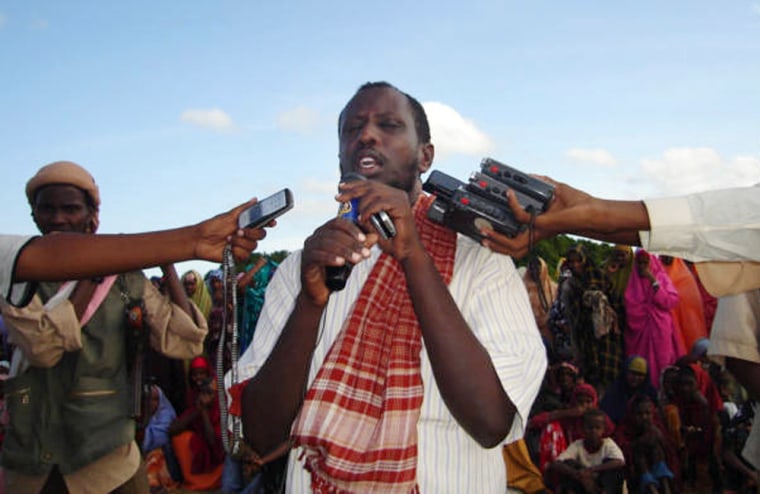Islamic militants captured the last strategic town held by their warlord rivals Wednesday, consolidating their hold over a large swath of Somalia even as the country’s parliament called for help from foreign peacekeepers.
President Abdullahi Yusuf’s government, whose military consists of little more than the president’s personal militia, has watched from the sidelines as the Islamic forces overcame a coalition of secular warlords to take control of southern Somalia.
With Wednesday’s victory in Jowhar, 60 miles northeast of Mogadishu, the Islamic Courts Union now controls all of southern Somalia except Baidoa, the seat of the weak transitional government. The rival warlords no longer have a foothold in the region.
Last week, the Islamic militia seized the capital, Mogadishu, also in the south, after months of fighting that killed more than 330 people, mostly civilians.
Hours after the Islamic force attacked the town of Jowhar from three directions Wednesday, the last of the warlords’ remaining fighters fled east, some in pickup trucks with rooftop-mounted machine guns. Militiamen seized the airport, just outside town. Residents were fleeing and witnesses reported as many as 19 dead.
With the consolidation of control over the region, the Islamic forces achieved a feat unmatched since largely clan-based warlords overthrew dictator Mohamed Siad Barre in 1991 and then turned on one another. Somalia has been without an effective central government since then.
Future of country uncertain
The Islamic militants, accused by the United States of harboring al-Qaida, portray themselves as free of links to Somalia’s past turmoil and capable of bringing order and unity. However, the future of a country accustomed to moderate Islam would be uncertain under hard-line Islamic rulers.
On Wednesday, parliament approved a plan for the deployment of Ugandan and Sudanese peacekeepers — a step that could set the government up for a confrontation with the Islamic militia. The Islamic groups have repeatedly rejected the idea of any foreign troops.
Omar Jamal, director of the Somali Justice and Advocacy Center in St. Paul, Minn., a hub for expatriate Somalis, called on the United States and the international community to stop the advance of the Islamic militia.
“No matter what language they use, the goal of the Islamic militants is to install a Taliban-style government in the country,” he said. “Instead, we need a democracy, we need freedom of the press, we need an election, we need a legitimate legal system.”
U.S. officials have acknowledged backing the warlord-led Alliance for the Restoration of Peace and Counterterrorism against the Islamic militants.
Historical war wounds
Somalia’s south has seen the worst violence in the country over the past 15 years. In Mogadishu, residents still remember battles between warlords and a U.N. peacekeeping mission in the early 1990s.
Northern and central Somalia, in contrast, have experienced only sporadic violence. Northeastern Somalia is run by an autonomous government allied to the president, and central Somalia, where some warlords have fled, is controlled by several groups.
Islamic fighters patrolled Jowhar on Wednesday afternoon, with one commander, Sheikh Hassan, reassuring civilians and telling them to be calm.
A witness at Jowhar’s main hospital counted 19 bodies, 18 of them fighters and one civilian. Doctors were not available for comment because they were treating the wounded.
In response to the Islamic militia’s growing power, the United States is convening a meeting on Somalia in New York on Thursday.
After taking Mogadishu, the group sent a letter proclaiming it was not an enemy of the United States.
Henry Crumpton, the State Department’s counterterrorism coordinator, told the Senate Foreign Relations Committee on Tuesday that his department didn’t anticipate the events in Somalia and has an “imperfect understanding” of the Islamic group.
“We expect them to work with the transitional government, and we also expect them to work with us to hand over al-Qaida and foreign fighters,” Crumpton said.
Only one African country — Tanzania — was expected at the first meeting of the Somalia Contact Group. But State Department spokesman Sean McCormack said other countries may be added.
